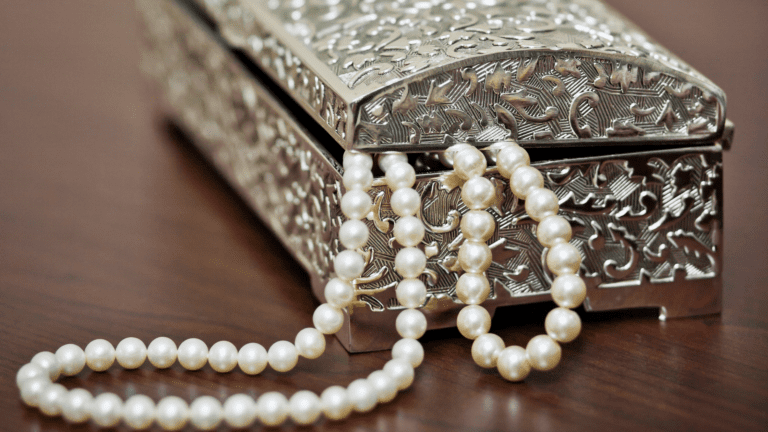The Iconic Brands of Luxury Fashion: A Look at Their Legacy and Influence

Luxury fashion brands have been the cornerstone of haute couture and lavish lifestyle for generations, helping to define tastes in fashion from anywhere in the world. These iconic fashion labels are more than just the clothing they manufacture- they’re statements about one’s identity, style, and financial success.
In this article, we dive into the impact these luxury brands have had on society – both through their influence over popular culture and their sheer wealth and influence that transferred into business models that defined how other companies would operate in similar industries. We will focus on how these beloved luxury labels made some of history’s most recognized symbols and marks – both still standing today alongside modern upstarts.
An Overview of Luxury Fashion Brands and Their History
Luxury fashion brands have a long and rich history, representing the pinnacle of style and sophistication in the fashion world. These brands symbolize extravagance and refinement, catering to a discerning clientele who value craftsmanship, quality, and exclusivity. Some of the most iconic names in the luxury fashion industry include Chanel, Louis Vuitton, Gucci, and Prada, each with unique stories and identities.
While these brands are known for their high price tags, many fashion enthusiasts find ways to indulge in their passion for luxury fashion through second-hand stores or by scoring deals during sale periods. For example, the cheapest Chanel bag on the market can still command a hefty price tag. Still, it is often considered a valuable investment for collectors and fashion enthusiasts. Despite the high cost of luxury fashion, these brands continue to captivate us with their timeless designs and elegance.
Iconic Signature Style Elements of Each Brand
Each luxury fashion brand’s unique style sets them apart from the rest. This signature style often becomes synonymous with the brand itself, making it instantly recognizable and highly sought after by consumers. For example, Chanel is known for its classic quilted handbags and the iconic interlocking CC logo, while Louis Vuitton is recognized for its monogrammed leather bags and luggage. These signature style elements symbolize status, luxury, and sophistication.
In addition to their signature styles, these brands are also known for their attention to detail and use of high-quality materials. From the exquisite craftsmanship of a Gucci dress to the luxurious leather used in Prada shoes, these fashion houses spare no expense in creating pieces that exude elegance and luxury. This combination of style and quality has solidified these brands’ status in the fashion world.
In-Depth Look at the Current Legacy and Influence of Each Brand
Despite being decades or even centuries old, luxury fashion brands continue to significantly influence the industry. They introduce new collections that set trends and inspire other designers to create interpretations each year. In addition, these brands have also expanded into other areas, such as beauty, accessories, and homeware, further solidifying their presence in the world of luxury goods.
Perhaps one of the most influential aspects of these brands is their ability to evoke a sense of exclusivity and luxury. By limiting production and carefully selecting their clientele, these fashion houses create a sense of scarcity that only adds to their desirability. This exclusivity also extends to their marketing strategies, with many brands utilizing celebrity endorsements and high-end events to further establish their prestige.
A Closer Look at the Creative Designers Behind These Brands
Behind these iconic luxury fashion brands are creative minds that have helped shape their legacy and influence. From Coco Chanel to Tom Ford, each designer has left their mark on the brand they worked for and the industry. These designers create stunning pieces and set the tone for the brand’s image and direction.
Furthermore, many of these designers have become household names, with their personal lives and fashion choices just as intriguing to the public as their designs. These designers have become synonymous with their brands, from Karl Lagerfeld’s signature ponytail and sunglasses to Donatella Versace’s blonde locks and bold prints. They are often seen as style icons themselves.
Innovations in Textiles That Have Contributed to the Popularity of Luxury Brands
The success of luxury fashion brands can also be attributed to innovations in textiles and manufacturing processes. These brands have been at the forefront of incorporating new materials and techniques into their designs, resulting in higher quality and more diverse collections. From the use of lightweight nylon by Prada to Louis Vuitton’s patented canvas material, these advancements have enhanced the appeal of these brands and their profitability.
Moreover, luxury fashion brands have also been pioneers in sustainable and ethical practices. Many have implemented programs to reduce waste, promote fair labor conditions, and use eco-friendly materials. It aligns with the societal shift towards conscious consumerism and sets an example for other brands.
Understanding the Power of Luxury Brands and How They’ve Changed the Fashion Industry
The power and influence of luxury fashion brands cannot be denied, as they have significantly shaped the fashion industry and consumer behavior. From setting trends to creating a sense of exclusivity, these brands have transformed how we perceive and consume fashion.
One significant change brought about by luxury brands is the rise of fast fashion. With an increasing demand for affordable versions of high-end designs, many fast fashion retailers have emerged to offer similar styles at a fraction of the cost. It has led to concerns about sustainability and originality in the industry and ethical issues surrounding labor practices.
Similar Posts:
- How Women’s Footwear is Pivoting Towards Eco-Friendly Practices
- Trendsetters: Five Celebrities With Great Fashion Taste
- From Nightgowns to Loungewear: The Evolution of Pajamas Over the Years
- Hairstyle Evolution: Reflecting Changes in Men’s Fashion
- Splurge or Save? How to Make the Right Fashion Choices









